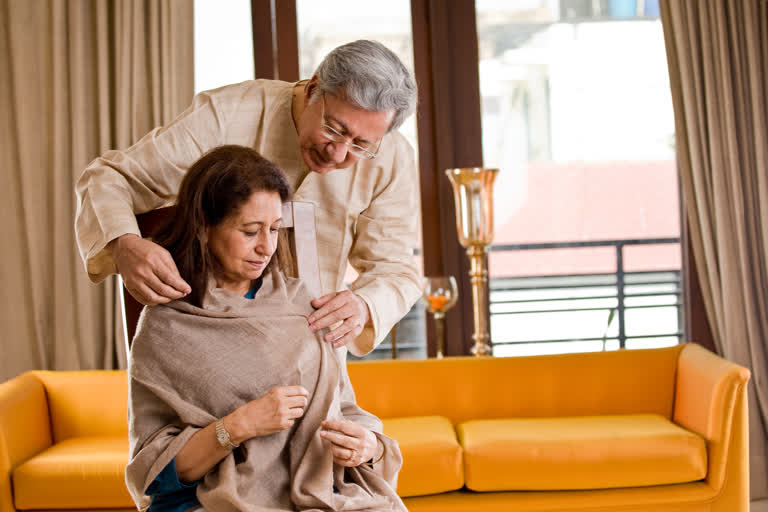The extended lockdown has brought in new challenges in everyone’s life. The elderly population is compelled to face the new reality of pandemic and lockdown which is throwing them off balance. The lockdown has added to loneliness, changes in food habits, and lifestyle. They are also immune-compromised which is manifesting into many mental health issues like stress and depression. How can they cope up with these challenging times? let's find out from Dr. Aditya Tiwari.
How did the lockdown affect the lives of the elderly?
As information emerged, it was becoming evident that people with weaker immunity were more susceptible and very young children and the elderly were the most vulnerable as a higher number of deaths was in this age group. It’s a frightful situation when one hears that they are at a high risk of complications and death. Fear of death is universal, but gets heightened when you know that you could be one of them. This causes a lot of stress indirectly and also affects physical health. Those with diabetes, hypertension, heart conditions, asthma, chronic lung disease, kidney illnesses, etc. can experience instability in their conditions. Due to limitations in movement and difficulty in accessing health care services, it is more complex.
Old age has its own complications. It is a second childhood; the elderly are not very amenable to adapting easily. They have a pattern of living that works for them and they do not fare well if that has to be changed much and that too for a long time. Those who live with their families and children may feel that they don’t want to be a burden on them should they get sick. At the same time, those elderly who are living on their own–not having children or not living with children, are struggling to get their basic daily care in place. With house helps and cooks not available easily it is a big trouble to go through the daily chores. Falling sick or the thought of going to the hospital is a nightmare. “What if you go to treat one thing and contract the Covid-19 infection??”
Elders generally go to parks or places of religious worship. Both these were closed as a result of lockdown. How has this been impacted their life?
In this scenario anxiety, fear and depression are very common in the elderly. They may feel restless and may have mood swings or irritability. One elderly lady felt disillusioned from her god as she thought that this is the time when one expects divine intervention and none is actually happening. This was a big question on her lifelong devotion and ritualistic practice of religion. Many such questions arise for them and it helps if they can talk it out or sort it out with someone. Sadly, their morning walks and evening meetings have also stopped, isolating them altogether especially those who live away from their children. Also, elders need human contact to feel better.
How to ensure emotional stability and support in such times?
We can help them emotionally by connecting with them and reassuring them that they are not alone, not on their own, but they have the support they need. Family, neighbours or the societies can take the initiative to help the elderly with basic daily needs. Helping them buy essential provisions like milk, fruits, vegetables, getting bills paid, recharge their cable TV or may be supplying tea and snacks, food, etc. helps a lot. Calling them a couple of times a day and simply asking– “How are you? Do you need anything” helps tremendously. Helping them learn simple technology like a video call so that they could remain in touch with their loved ones is a big gift for them. Playing board games–chess, ludo, etc. for some time can lift their spirits a lot.
De-stressing exercises like simple progressive muscular relaxation, slow deep breathing exercises are very effective in reducing heightened anxiety. These are very easy to learn are highly recommended.
In cases where there is a significant observable change in their behaviour or when they report significant distress mentally or emotionally professional psychological help should be sought. Physical health assessment still remains an important part as very often small electrolyte imbalances can give rise to behaviour change. Many other complications in the metabolism due to existing illnesses may result in mood or behaviour change or in cognitive impairment of varied degree. Hence a proper holistic evaluation is imperative. Homeopathic medications have a good role to play in reducing symptoms of stress and should be considered where non-medicinal interventions do not help much.
Stabilizing basic physiological parameters and emotional and social support remain the three main pillars for the elderly care in the current situation. Basically caring for them as one cares for a child is the key.
Inputs from
Dr. Aditya Tiwari
Consultant Homeopath, Psychiatrist and Art based therapist at Angel’s Clinic,
Mumbai



